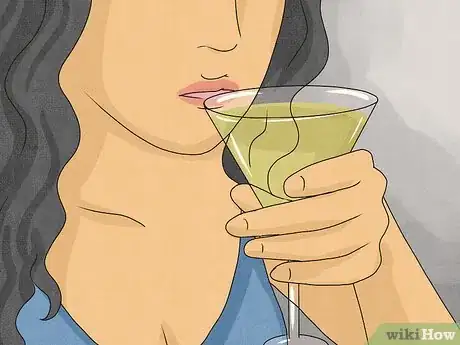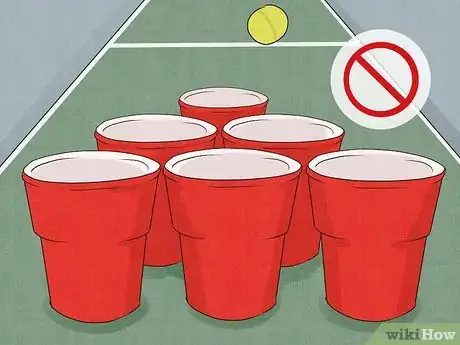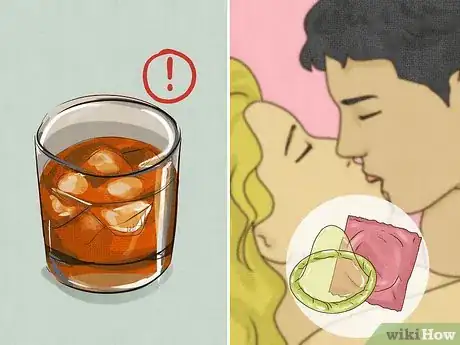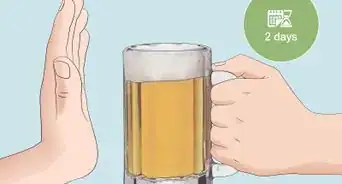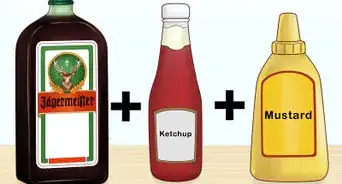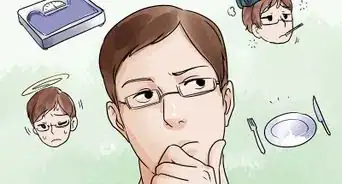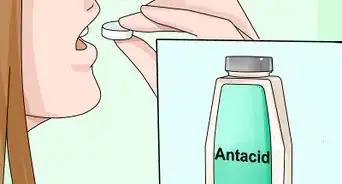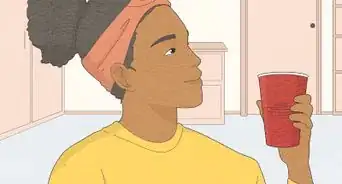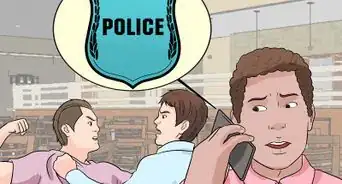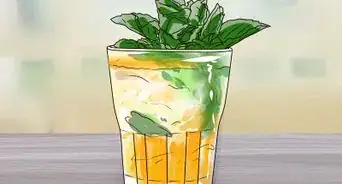This article was co-authored by wikiHow Staff. Our trained team of editors and researchers validate articles for accuracy and comprehensiveness. wikiHow's Content Management Team carefully monitors the work from our editorial staff to ensure that each article is backed by trusted research and meets our high quality standards.
There are 17 references cited in this article, which can be found at the bottom of the page.
This article has been viewed 42,593 times.
Learn more...
Ah, alcohol. Plenty of people attend parties without drinking, but sometimes a little alcohol can help you relax and enjoy socializing even more! On the flip side, alcohol can be stronger, more unpleasant, or even more dangerous than you might expect. Don't worry though—just be careful to follow these smart drinking practices, and you'll be all set to have a safe and fun time when you attend your next party.
Steps
Expert Q&A
-
QuestionCan you enjoy a party without alcohol?
 Tracy Carver, PhDDr. Tracy Carver is an award-winning Licensed Psychologist based in Austin, Texas. Dr. Carver specializes in counseling for issues related to self-esteem, anxiety, depression, and psychedelic integration. She holds a BS in Psychology from Virginia Commonwealth University, an MA in Educational Psychology, and a Ph.D. in Counseling Psychology from The University of Texas at Austin. Dr. Carver also completed an internship in Clinical Psychology through Harvard University Medical School. She was voted one of the Best Mental Health Professionals in Austin for four years in a row by Austin Fit Magazine. Dr. Carver has been featured in Austin Monthly, Austin Woman Magazine, Life in Travis Heights, and KVUE (the Austin affiliate for ABC News).
Tracy Carver, PhDDr. Tracy Carver is an award-winning Licensed Psychologist based in Austin, Texas. Dr. Carver specializes in counseling for issues related to self-esteem, anxiety, depression, and psychedelic integration. She holds a BS in Psychology from Virginia Commonwealth University, an MA in Educational Psychology, and a Ph.D. in Counseling Psychology from The University of Texas at Austin. Dr. Carver also completed an internship in Clinical Psychology through Harvard University Medical School. She was voted one of the Best Mental Health Professionals in Austin for four years in a row by Austin Fit Magazine. Dr. Carver has been featured in Austin Monthly, Austin Woman Magazine, Life in Travis Heights, and KVUE (the Austin affiliate for ABC News).
Licensed Psychologist Definitely—just focus on what you can do, rather than what you can't. If you don't want to drink at a party, put your energy toward making connections with other people and checking out the non-alcoholic drinks available.
Definitely—just focus on what you can do, rather than what you can't. If you don't want to drink at a party, put your energy toward making connections with other people and checking out the non-alcoholic drinks available.
Warnings
- Alcohol can make many medications less effective or interact with them to cause health problems. If you are taking a prescription drug or used an over-the-counter drug today, look them up online to check for alcohol interactions. Antibiotics, antidepressants, allergy or cold medications, and pain meds (even things like Tylenol) are just a few examples of drugs that can interact badly with alcohol.[22]⧼thumbs_response⧽
- If you are caught drinking underage or even drinking near underage people, you could be fined or lose your driving rights. Be careful and know the law in your state or country.[23]⧼thumbs_response⧽
References
- ↑ https://mcwell.nd.edu/your-well-being/physical-well-being/alcohol/absorption-rate-factors/
- ↑ https://www.healthdirect.gov.au/top-7-tips-for-safe-drinking
- ↑ https://www.niaaa.nih.gov/alcohols-effects-health/overview-alcohol-consumption/what-standard-drink
- ↑ https://www.nm.org/healthbeat/healthy-tips/alcohol-and-the-brain
- ↑ https://mcwell.nd.edu/your-well-being/physical-well-being/alcohol/absorption-rate-factors/
- ↑ https://my.clevelandclinic.org/health/diseases/17659-alcohol-intolerance
- ↑ https://www.healthdirect.gov.au/top-7-tips-for-safe-drinking
- ↑ https://www.betterhealth.vic.gov.au/health/HealthyLiving/Partying-safely#alcohol-at-parties
- ↑ https://www.betterhealth.vic.gov.au/health/HealthyLiving/Partying-safely#alcohol-at-parties
- ↑ https://www.thrillist.com/how-to/how-to-measure-a-shot-without-a-shot-glass
- ↑ https://umatter.princeton.edu/limits-matter/tools/how-say-no-drink
- ↑ https://www.healthdirect.gov.au/top-7-tips-for-safe-drinking
- ↑ https://umatter.princeton.edu/limits-matter/tools/how-say-no-drink
- ↑ https://shop.ucsc.edu/alcohol-other-drugs/overdose-prevention/common-combinations.html
- ↑ https://www.cdc.gov/alcohol/fact-sheets/caffeine-and-alcohol.htm
- ↑ https://onlinelibrary.wiley.com/doi/full/10.1111/jnc.13219
- ↑ https://www.mines.edu/student-life/wp-content/uploads/sites/7/2019/04/DrinkingGameDangers19-1.pdf
- ↑ https://roadsafety.transport.nsw.gov.au/stayingsafe/alcoholdrugs/gettinghome.html
- ↑ https://roadsafety.transport.nsw.gov.au/stayingsafe/pedestrians/vulnerablepedestrians/index.html
- ↑ https://www.betterhealth.vic.gov.au/health/healthyliving/alcohol-teenagers
- ↑ https://mcwell.nd.edu/your-well-being/physical-well-being/alcohol/absorption-rate-factors/
- ↑ https://www.niaaa.nih.gov/publications/brochures-and-fact-sheets/harmful-interactions-mixing-alcohol-with-medicines
- ↑ https://www.edgarsnyder.com/car-accident/who-was-injured/teen/underage-drinking-laws.html

